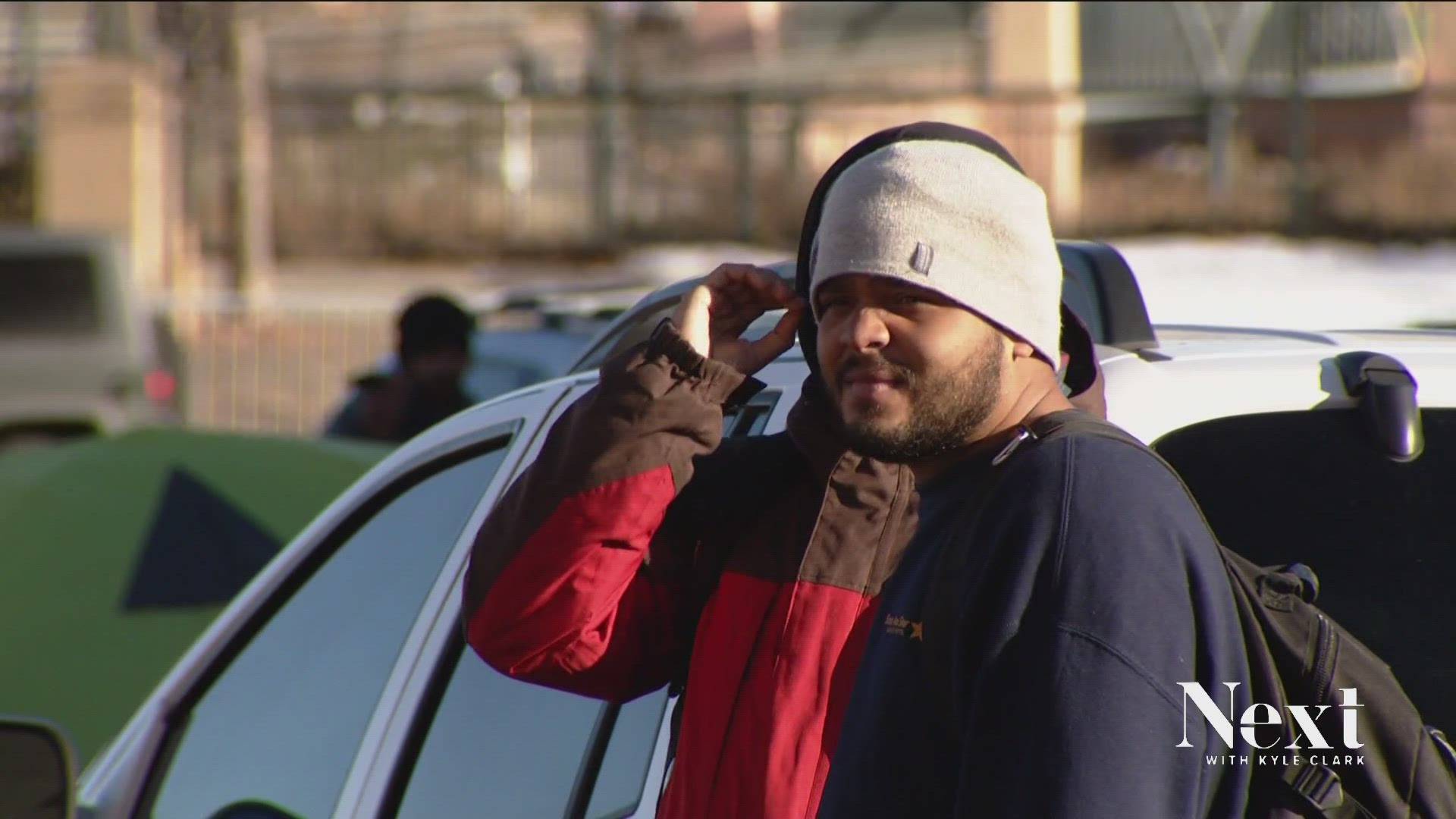DENVER, Colorado — The City of Denver is drawing a line in the sand, saying migrants who are currently in shelter will have access to a new, intensive program to help them stabilize in Denver. Migrants who arrive after Wednesday and in the future will be met with fewer resources and only 72-hour stay limits in city shelters.
In a press conference Wednesday, Denver Mayor Mike Johnston unveiled the city's new 'Denver Asylum Seeker Program.' Those who are currently in shelter or transitional housing will automatically have priority to get into the program, if they want it. The city is currently conducting a count to determine how many people that is. They estimate it is 1,000 migrants.
The city designed the program to meet the challenges of the migrants who are arriving today versus a year ago. Those who arrived prior to July 31, 2023, have temporary protected status.
Those who arrived closer to the end of summer and into the fall typically arrived using the CBP One app, a program the Biden administration started in early 2023 to discourage unlawful border crossings by allowing migrants to use the phone app to set up an appointment at international bridges, where U.S. officials can then determine whether they should be allowed into the country to request asylum. Both groups have access to a more streamlined system to receive a work permit.
"What is happening, overwhelmingly now, is that the folks that are arriving do not fit into either of these two categories," Johnston said.
Most migrants arriving now must apply for asylum to receive a work permit. That process takes 180 days from the time the application is filed and is also costly, to the point that many cannot afford the application fees.
As a result, the city developed a program which will allow migrants to apply for asylum. It will also give them access to workforce training, food assistance and housing resources.
The workforce training, called WorkReady, is a collaboration with non-profits, local businesses, educational institutions and training organizations, the city says. It also includes language instruction.
As the city spokesperson put it, it will allow them to serve "fewer people better."
"We will have a limited number of slots to be able to do that because these services require more time, require more staffing and require more expertise. For those folks who do not do that, we will have a congregate shelter system," Johnston said.
Due to capacity limits within the program, only those who are in shelter as of Wednesday, April 10, will be eligible to be a part of it. Those who arrive in the days to come will now have access to 72-hours of shelter.
"We will no longer move forward with a hotel infrastructure that offers 14- or 42-day stays, because that is not the right structure for the services we have," Johnston said.
Advocates say the three-day shelter stay will not benefit the migrants who weren't here to take advantage of the program and will leave them in a more difficult position.
"By suggesting that they only have 72 hours of authorized shelter stay, after which they get a ticket out of town, or what? The 'or what' is that people will turn to the streets. People are not looking to move on," said V Reeves with House Keys Action Network Denver.
The move, V says, will result in a growing unhoused population. The city, on the other hand, says it will encourage those migrants to stay with family or friends. If they don't already have someone to stay with in Denver, the city recommends they continue with onward travel.
Yoli Casas with nonprofit ViVe Wellness says that the city's previous model wasn't setting people up for success either. Even those who received over a month in a city shelter were still ending up in encampments.
"It’s not sustainable, and we are finding that more and more people can’t get your life together in one month," said Casas, who is in support of the newly created program. "We are seeing many people on the streets. Even after we have given them that assistance for a month. It’s just not enough."
She described those who are here today as having a "golden ticket" of opportunity to jumpstart their lives in the United States with the right support network. Within six months, she believes all who participate will have a work permit.
"The seventh month they will be able to pay. They will have a great job. The kids will be in school," Casas said.
As a service provider who has been doing the work since December 2022, she says it was time to reevaluate.
"It’s not sustainable. Funding wise, it’s not sustainable. Mental health wise, our non-profits are here to serve our community," Casas said.
More from Angeline McCall:
SUGGESTED VIDEOS: Next with Kyle Clark

